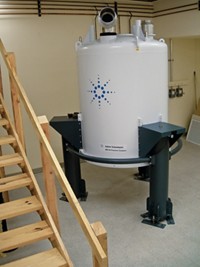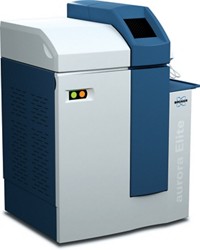Advertisement
Grab your lab coat. Let's get started
Welcome!
Welcome!
Create an account below to get 6 C&EN articles per month, receive newsletters and more - all free.
It seems this is your first time logging in online. Please enter the following information to continue.
As an ACS member you automatically get access to this site. All we need is few more details to create your reading experience.
Not you? Sign in with a different account.
Not you? Sign in with a different account.
ERROR 1
ERROR 1
ERROR 2
ERROR 2
ERROR 2
ERROR 2
ERROR 2
Password and Confirm password must match.
If you have an ACS member number, please enter it here so we can link this account to your membership. (optional)
ERROR 2
ACS values your privacy. By submitting your information, you are gaining access to C&EN and subscribing to our weekly newsletter. We use the information you provide to make your reading experience better, and we will never sell your data to third party members.
Business
Agilent Will Shut Down NMR Business
About 300 jobs will go as firm exits nuclear magnetic resonance operation
by Marc S. Reisch
October 15, 2014

Agilent Technologies is shutting down its struggling nuclear magnetic resonance instrumentation business and eliminating 300 jobs in Yarnton, England, and Santa Clara, Calif.
“This action is a step in ensuring that our investments are placed on high-value life sciences, applied markets, and diagnostics solutions,” says Mike McMullen, Agilent’s chief operating officer. The firm will immediately stop taking NMR system orders but will continue to fill orders in progress and will support existing systems.
Agilent tried to shore up its NMR operation last year when it exited specialty magnets and magnetic resonance imaging. But those efforts were not enough to restore profitability to the NMR business.
The closure will reduce revenues by about $30 million in 2015, the firm says, but will boost operating profit by $10 million. To account for shutdown costs, Agilent plans to take a $72 million restructuring charge.
The NMR business, acquired as part of the purchase of Varian in 2010, made Agilent a major player in supplying the large instruments, which researchers use to determine molecular structure. The acquisition was one of the key reasons behind the $1.5 billion Varian purchase. The deal also brought with it imaging and vacuum technologies and a consumables portfolio.
With Agilent out of the picture, only two makers of large NMR systems for molecular analysis survive: Bruker and Jeol Resonance.
Hurting the NMR business in recent years has been a shortage of helium used to cool the instruments’ large magnets. Growing instead have been small NMRs, which don’t use helium and are less expensive but also less sensitive than their larger cousins. Players there include Magritek and ThermoFisher Scientific, which bought PicoSpin in 2012.
Agilent is not alone in shutting down former Varian instrument businesses this year. Citing “significant losses,” Bruker said in July that it would divest stand-alone gas chromatography, GC/single-quadrupole mass spectrometry, and inductively coupled plasma/MS systems. Bruker bought most of them in 2010 from Agilent, which had to sell them to get antitrust authorities to clear the Varian purchase.





Join the conversation
Contact the reporter
Submit a Letter to the Editor for publication
Engage with us on Twitter